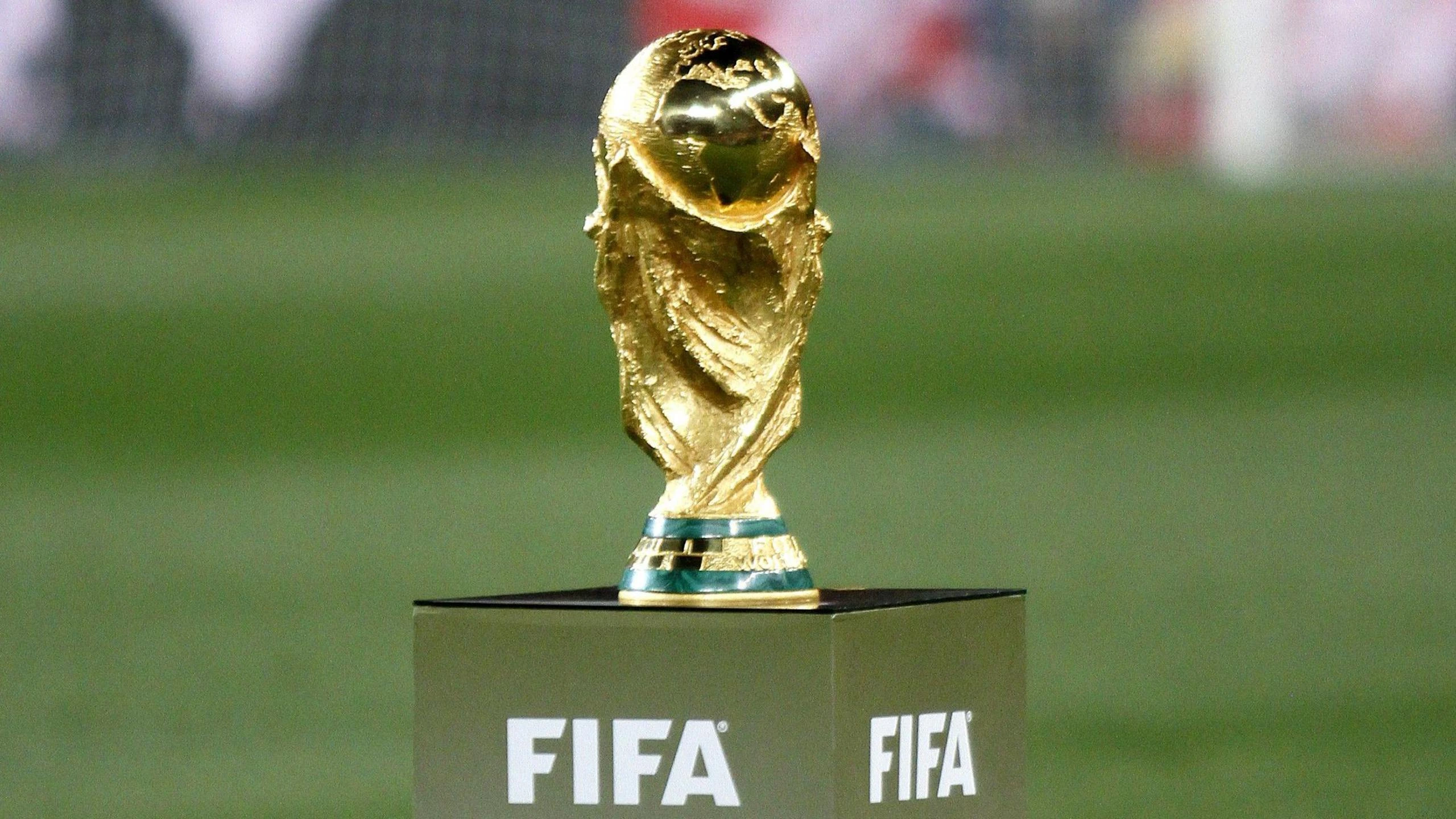
The FIFA World Cup is more than just a football tournament; it’s a global phenomenon that captivates billions of people every four years, with a rich and often surprising history filled with fascinating stories, quirky records, and iconic moments. From its humble beginnings in 1930 with just 13 teams to becoming the most-watched sporting event on the planet, the World Cup has generated a treasure trove of unique facts, from a stolen trophy being found by a dog named Pickles to record-breaking goals scored by players of all ages. Whether you’re a die-hard fan or a casual observer, these little-known facts offer a deeper look into the history and immense scale of this incredible competition.
The World Cup, first held in 1930, is a prestigious international football tournament that takes place every four years. This consistent schedule allows for qualification matches and provides nations time to prepare their teams, build stadiums, and organize the massive logistical undertaking of hosting the event. The inaugural tournament was a historic moment for international football, establishing a competition that would grow to become the most-watched sporting event in the world.
The original World Cup trophy was named the Jules Rimet Trophy in honor of FIFA President Jules Rimet. Rimet was instrumental in the tournament’s creation, as he passed a vote to start the competition in 1929. The trophy, depicting Nike, the Greek goddess of victory, was a symbol of the ultimate prize in football for decades. It was permanently awarded to Brazil after they won their third World Cup in 1970, and a new trophy, the FIFA World Cup Trophy, was created for the subsequent tournaments.
Uruguay holds a special place in World Cup history as they were both the host and the winner of the very first tournament in 1930. This dual accomplishment is a rare feat, as hosting a major tournament brings immense pressure and logistical challenges. Uruguay’s victory on home soil solidified their place as a dominant force in early international football and set a high standard for future host nations.
Russia hosted its first-ever World Cup in 2018, marking a significant milestone for the country and the tournament. The event was held across 11 cities, showcasing Russia’s diverse culture and vast geography. The tournament was a spectacle of modern stadiums and fan zones, attracting millions of visitors from around the globe and providing a platform for Russia to demonstrate its organizational capabilities on a global stage.
England has a unique relationship with the World Cup, having hosted the tournament only once in 1966. This was a pivotal year for English football, as it was also the only time they have ever won the competition. The final match was a thrilling contest against Germany, ending in a dramatic 4–2 victory for England in the final minutes of extra time. The iconic moment from this final, “They think it’s all over; it is now,” has become a famous quote in sporting history, forever linked to England’s singular triumph.
The 2014 World Cup in Brazil captured an astonishing audience, with almost half of the world’s population, or 3.2 billion people, tuning in to watch the matches. This staggering number highlights the tournament’s unparalleled global appeal and its ability to unite people from diverse cultures and backgrounds. The widespread viewership demonstrates the power of football to transcend geographical boundaries and create a shared, worldwide experience.
The 2002 World Cup was a historic event, as it was the first time the tournament was hosted by two different nations: South Korea and Japan. This co-hosting arrangement presented a unique set of logistical and organizational challenges but ultimately proved to be a success. The tournament was a vibrant celebration of football and culture, bridging two nations and bringing the World Cup to a new part of the world.
Brazil stands as the most successful nation in World Cup history, having won the tournament a remarkable five times. Their victories in 1958, 1962, 1970, 1994, and 2002 have cemented their legacy as a footballing powerhouse. This record is a testament to the nation’s deep-rooted passion for the sport and their consistent production of world-class talent over several decades.
While Brazil leads with five titles, Germany and Italy are close behind, each having won the World Cup four times. Both nations have a rich footballing heritage and a history of producing highly competitive teams. Their consistent performance in the tournament has placed them among the elite in international football, and they remain strong contenders in every World Cup cycle.
At the age of 45, Egyptian goalkeeper Essam El Hadary became the oldest player to ever compete in the World Cup at the 2018 tournament in Russia. In his final game, he made history again by saving a penalty from Saudi Arabia’s Fahad Al Muwallad, becoming the oldest-ever goalkeeper to do so. His participation at an advanced age is a testament to his longevity, dedication, and enduring skill in the sport.
Roger Milla of Cameroon holds the record for being the oldest person to ever score a goal at a World Cup. He achieved this feat in 1994 against Russia at the age of 42, becoming a global sensation for his memorable goal celebration. Milla’s achievement is a source of inspiration, demonstrating that age is not a barrier to performing at the highest level of football.
The 2018 World Cup in Russia highlighted the country’s vast size, with a remarkable distance of 1,500 miles separating the easternmost host city, Ekaterinburg, and the westernmost city, Kaliningrad. This distance is comparable to the length of the journey from Moscow to London, emphasizing the significant travel challenges faced by teams, fans, and organizers during the tournament.
The fastest-ever World Cup goal was scored just 10.89 seconds after kick-off by Hakan Sukur of Turkey. The goal came in the 2002 third-place playoff match against South Korea. This lightning-fast strike remains a record, showcasing the importance of quick thinking and immediate pressure from the first whistle of a match.
The highest-ever scoring World Cup match was a thrilling 7–5 victory for Austria over Switzerland at the 1954 tournament. The match was an extraordinary display of offensive football, with a total of 12 goals scored. This high-scoring affair remains a record for the most goals in a single World Cup game and is an iconic example of pure attacking football.
A strange and famous incident occurred in 1966 when the World Cup trophy was stolen prior to the tournament. The trophy went missing for 7 days before being found wrapped in newspaper under a bush by a dog named Pickles. This bizarre event, which thankfully had a happy ending, added an unusual chapter to the history of the tournament and its coveted prize.
Peter Shilton of England and Fabien Barthez of France share the record for the most clean sheets in the World Cup, with 10 each. A clean sheet is when a goalkeeper prevents the opposing team from scoring a goal in a match. This shared record highlights their exceptional skill, consistency, and ability to organize their defense over multiple tournaments.
Mexico has the unfortunate record of being the team with the most losses in World Cup history, having lost 25 different matches since the tournament began. This statistic reflects their long history of participation in the competition, as they have qualified for more tournaments than many other nations. Despite the losses, Mexico’s frequent presence at the World Cup demonstrates their enduring status as a consistent competitor.
Italy holds the record for the most draws in World Cup history, with a total of 21 draws. This high number is a reflection of their tactical approach, often characterized by a strong defensive focus (catenaccio) that prioritizes preventing goals and earning a point rather than always pushing for a win.
Brazil is the team with the most wins in World Cup history, having won a total of 70 games at the tournament. This record is a testament to their long history of success and consistent qualification for the finals. Their win count is a clear indicator of their dominance and sustained excellence on the world stage.
Brazil also holds the record for the most wins in a single tournament, winning 7 matches in the 2002 World Cup in South Korea and Japan. This remarkable feat means they won every single game in the tournament that year, from all three of their group games to their Round of 16 match, Quarter Final, Semi-Final, and the Final. This perfect run secured their 5th World Cup title and stands as a testament to their unparalleled dominance that year.
Germany has only failed to advance past the group stages in the World Cup on two occasions. The first was in 1938, and the second was 80 years later, in the 2018 World Cup. This second group stage exit was particularly shocking as they were the defending champions and were knocked out after a crushing defeat at the hands of South Korea. This rare failure highlights the unpredictable nature of the tournament, where even the most dominant teams can falter.
Only two teams have ever managed to win the World Cup twice in a row: Italy and Brazil. Italy achieved this in 1934 and 1938, while Brazil accomplished the feat in 1958 and 1962. This back-to-back success is a rare and difficult accomplishment, requiring a sustained period of excellence and a core group of world-class players.
Indonesia has played the least amount of World Cup matches, with only one appearance in the tournament’s history. This single match took place in 1938, when they were known as the Dutch East Indies. Their limited participation makes them a unique case in World Cup history and highlights the long journey many nations face to qualify for the prestigious event.
The upcoming 2026 World Cup will see a significant expansion, with the number of qualified teams jumping from 32 to 48. This major change will provide more nations with the opportunity to compete on the world stage, making the tournament more inclusive and diverse. The new format will change the structure of the competition and likely lead to more unpredictable results.
The most goals ever scored by a single player in a World Cup game is an impressive 5, a record held by Oleg Salenko of Russia. He achieved this feat in 1994 during a match against Cameroon. Salenko’s incredible performance stands as a rare and exceptional display of individual scoring prowess in the history of the tournament.
Argentina holds the record for the most red and yellow cards across all their World Cup tournaments. This statistic reflects the team’s passionate and often aggressive style of play, which can lead to disciplinary actions from referees. It highlights their competitive spirit and the intensity with which they approach every match.
Retired German striker Miroslav Klose is the all-time leading goal scorer in World Cup history, having scored 16 goals in total. This record was achieved over four different tournaments (2002, 2006, 2010, and 2014). Klose’s consistency and knack for scoring on the biggest stage cemented his place as one of the greatest strikers to ever play in the competition.
FAQs about the World Cup:
What is the FIFA World Cup?
The FIFA World Cup is the most prestigious international football (soccer) tournament in the world. Organized by the Fédération Internationale de Football Association (FIFA), it is a quadrennial event where 32 men’s national teams compete for the title of world champion. It is the most-watched sporting event globally, attracting billions of television viewers each tournament. The competition has been held every four years since 1930, with the exception of 1942 and 1946 due to World War II.
Why is the World Cup held every four years?
The four-year gap between each World Cup serves a crucial purpose. It provides enough time for the extensive qualification tournaments and playoffs to take place among the national teams of the 211 member associations of FIFA. This lengthy process, which can take up to three years, determines which teams will compete in the finals. Additionally, the four-year cycle gives the host country or countries sufficient time to plan the logistics of the tournament, including building and renovating stadiums, and developing the infrastructure needed to accommodate the massive influx of players, media, and fans.
Which country has won the most World Cups?
Brazil is the most successful nation in the history of the men’s FIFA World Cup, having won the title a record five times (1958, 1962, 1970, 1994, 2002). They are the only team to have participated in every single World Cup tournament since its inception. Close behind Brazil are Germany and Italy, who have both won the tournament four times. Argentina, the current champions, have won three titles.
Who is the all-time top goal scorer in World Cup history?
The all-time top goal scorer in the history of the men’s World Cup is Miroslav Klose of Germany. He scored a total of 16 goals across four different tournaments (2002, 2006, 2010, 2014). Following him is Ronaldo of Brazil, with 15 goals, and Gerd Müller of West Germany, with 14 goals.
How many teams participate in the World Cup?
Since 1998, the World Cup has featured 32 national teams in the final tournament. However, starting with the 2026 World Cup, the number of participating teams will increase to 48. This expansion will provide more opportunities for teams from different confederations to qualify and compete on the world stage. The format for the 2026 tournament will change, with teams being divided into 12 groups of four, and the top two teams from each group, plus the eight best third-place teams, advancing to a new knockout stage, the Round of 32.









